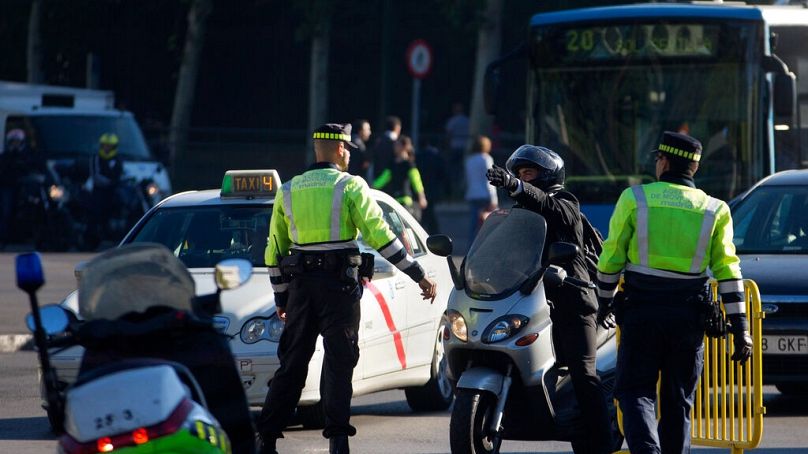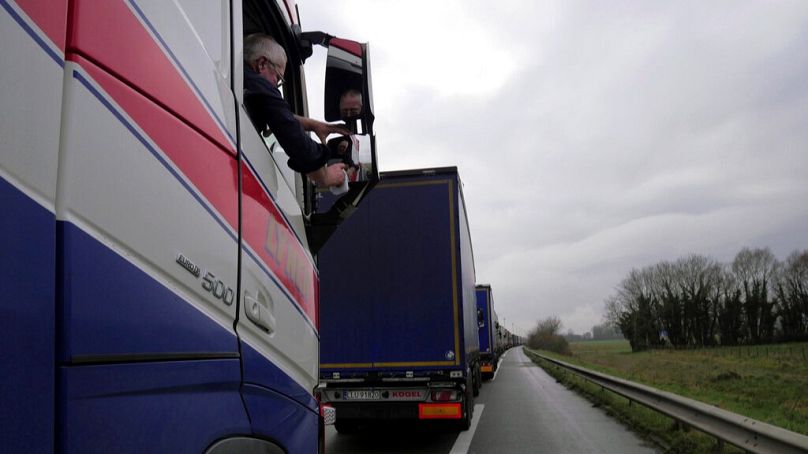The European Parliament approved changes to legislation to ensure that reckless drivers are disqualified across the entire bloc.
The European Parliament on Tuesday approved two major reforms to EU driving rules — one ensuring that bans on reckless drivers apply across all member states, the other introducing digital licences and updated testing standards.
Under the current system, a driver banned for a traffic offence in one EU country can often continue driving elsewhere, including in the nation that issued their licence.
Because there is no automatic EU-wide suspension, about 40% of driving offences committed abroad go unpunished.
The new law stipulates that a “driving disqualification” issued in one EU country will take effect across the EU, even if the licence was issued elsewhere.
Such disqualifications apply to serious road-safety offences, including drink-driving, excessive speeding, drug-driving, and violations that result in death or serious injury.
The latter covers the use of mobile phones and other distracting devices while driving, Italian socialist MEP Matteo Ricci, the bill's rapporteur, said after it was approved.
Once a member state imposes a disqualification, it must notify the licence-issuing country using a standard EU certificate.
The latter then has 15 days to withdraw the licence — effectively barring the offender from driving anywhere in the EU for the duration of the ban.
There are, however, some exceptions. A country may refuse to enforce another state’s disqualification if the offence would not carry the same penalty under its own laws.
For instance, thresholds for drink-driving vary widely across the EU: some countries withdraw licences for any detectable blood-alcohol level, while others allow limited amounts.
Similarly, a speeding offence may only trigger an EU-wide suspension if the driver exceeded the local speed limit by at least 50 km/h, since rules differ across countries — and in Germany, certain motorways have no limit at all.
Ricci told Euronews that the European Parliament had to accept these compromises to ensure the bill’s passage, but he insisted the outcome is a major step forward.
“The decision of suspension and withdrawal will be recognised and enforced throughout Europe”, he said.
A digital licence for European drivers
The second law updates EU driving licence rules more broadly, introducing digital licences, new test requirements, and lower age limits for professional drivers.
The digital licence, accessible via smartphone, will gradually become the EU’s primary format — though drivers may still request a physical card.
New drivers will face a minimum two-year probation period, with stricter penalties for drink-driving, not wearing seat belts, or failing to use child restraints.
Seventeen-year-olds will be allowed to obtain a licence but must be accompanied by an experienced driver until turning 18.
To address Europe’s chronic shortage of professional drivers, the legislation lowers the minimum age for truck licences to 18 and for bus licences to 21.
This provision was heavily criticised by some MEPs.
“Lowering the minimum driving age for professional bus, coach, and truck drivers poses a serious risk to road safety [...] as younger truck drivers are far more likely to be involved in road accidents and fatalities”, Greek leftist MEP Elena Kountoura told Euronews.
“The shortage of professional drivers will not be solved by lowering safety standards, but by improving salaries and working conditions, ensuring adequate rest periods, safe and secure parking areas, and fair schedules”, she said.
New driver training will also place greater emphasis on blind spots, distracted driving, and interactions with vulnerable road users such as cyclists and pedestrians.
Under the new rules, licences will remain valid across the EU for 15 years for cars and motorcycles, and five years for trucks and buses. Member states may shorten validity periods for drivers aged 65 and older.
The legislative package, already endorsed by EU governments, will enter national law within three years. It aims to support the EU’s Vision Zero target of halving road deaths by 2030 — a goal still far from reach.
Last year, around 19,800 people died on European roads, just 3% fewer than in 2023.













